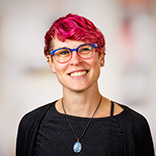Fred Hutch Spiritual Health
Your nurse, social worker or another care team member can connect you with us or you can reach us directly.
Phone: 206.606.5880
Spiritual Health clinicians at Fred Hutch Cancer Center provide respectful, spiritual and emotional care to people of all faiths and spiritualities, including those who identify themselves as nonreligious or nonspiritual. We will talk with you in a supportive and inquiring manner, rather than impose a perspective on you.
Spiritual Health care, which includes spiritual, religious, emotional and existential care, is available at any stage of your treatment process when receiving care at the Fred Hutch Sloan Clinic, UW Medical Center – Montlake and Fred Hutch community clinic locations.
How We Care for Patients and Families
We are committed to responding to every referral in a timely manner and making follow-up visits with patients and family members on a regular basis. We rely upon patients, families, friends and faith communities to let us know about someone who would benefit from meeting with a Spiritual Health clinician. A member of your care team may also refer you to us.
Illness can be a painful, frightening, and isolating experience full of uncertainties and loss. Sometimes illness can push one to the point of experiencing spiritual and emotional chaos, pain and distress. But it can also be an opportunity to celebrate, change and experience expressions of being cared for in new ways.
Spiritual Health welcomes the opportunity to be:
- A companion on your spiritual or existential journey
- An empathic listener
- A conversational partner as you seek, question or explore
- A comforter as you grieve
- A sounding board as you make tough decisions
- A conversational partner to talk about dying, death and afterlife
- A celebrator when you have good news
- A provider of religious rituals such as anointing, communion, prayer and blessings
- A resource for inspirational literature and sacred texts
- A connector to a local faith community, including places of worship
- A partner in guiding your legacy work. Legacy work (PDF)
Fred Hutch Sanctuary
In addition to the resources our Spiritual Health staff have to offer patients and their families, there is also a Sanctuary available to people of all faiths and spiritualities at the Sloan Clinic.
The Sanctuary is open for quiet time, prayer, meditation and reflection that can be vital to well-being and wholeness. It is located on the third floor of Sloan Clinic 1.
The Sanctuary is also a place of retreat, or a refuge for those who are hurting, while actions are being taken to help bring healing.
As a sacred space, the Sanctuary is a place where patients, families and staff can feel more connected to themselves, their traditions or the source of their spirituality. The Sanctuary is a shared space where everyone should respect the space and one another.
Prayers
A Book of Prayers is located on the round common table where you can write prayers or prayer requests, knowing that others will read what is written and join you in prayer.
Blessings
You may take a blessing from a blessing bowl in the Sanctuary. Different blessings are written on small colorful pieces of paper.
Resources
Varied spiritual resources are available for use by patients, families, and staff. These include sacred texts from diverse faith traditions, CareNotes, prayer rugs, a meditation pillow and Shabbat candles. etc.
Services
There are no regular organized worship and meditation services in the Sanctuary. Occasional services are held in the Sanctuary.
Spiritual Self-Assessment
Responding to the questions in this self-assessment can be helpful as a private exercise or an exploration with others as you reflect on your life and your beliefs. We want to be respectful of you. As you use this tool, you may want to substitute different terms more suitable to your tradition and beliefs. If you would like to explore with someone else, you are invited to contact Spiritual Health. You can reach us at 206.606.1099 or spiritualhealth@fredhutch.org.
Religious and Spiritual Background
- Do you consider yourself a spiritual and/or religious person?
- What are your key religious/spiritual beliefs/practices?
- Who do you turn to for religious or spiritual support?
Communities and Support Systems
- What people are in your support system (e.g., family, friends, colleagues)?
- What types of support do they provide (e.g., emotional, practical)?
- At this time, are they nearby or far away?
Cultural and Religious Needs
- What rituals are important to you?
- What special dietary requirements do you have?
- What gender-specific needs do you have (e.g., a male chaplain, a female doctor)?
- What is your language preference?
Spiritual Journey
- What is your earliest spiritual/religious memory?
- If you were writing a spiritual autobiography, what would be the title of the book and what would be the chapter headings (i.e., key moments/transitions in your spiritual life)?
- Have there ever been some dark times in your life? If so, how did you get through them?
- Who have been the key people in your spiritual journey—personal relationships and people you have read/heard about?
Sense of the Holy
- What is most important to you?
- How do you understand/experience God/the Sacred?
- How do you nurture your soul or yourself?
Meaning
- How do you make sense of what is happening in your life?
- Where have you normally found meaning in life?
- Where/how do you find meaning now?
- For what are you most grateful?
- What brings you joy?
- What are your most significant losses?
Hopes
- What are your hopes: immediate, intermediate, and ultimate?
- What are your dreams?
- Who are the key players in realizing your hopes and dreams?
- What are you most afraid of?
- If you pray, how do you pray or for what do you pray?
Health and Healing
- How have you experienced healing or positive changes in your life through this experience?
- What are particular ways that you would like to experience healing (e.g., relationships, priorities, how you spend your time and/or money, emotions, spirituality)?
- What does “healing” mean to you?
Dying and Death
- What are your hopes, fears, and/or concerns regarding dying/death?
- What are your beliefs about death and after-death?
- If you could choose how you were going to die, how would you die?
Spiritual Health is staffed with board-certified chaplains. This means that we are accountable to Fred Hutch, to a national certifying body and to a particular faith tradition. Minimal requirements are a professional master’s degree in spiritual studies, one year of full-time clinical education in a health care setting, and endorsement by a faith group. We follow a code of ethics that requires respectful care for all people.
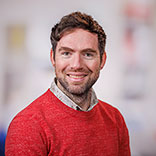
Luke Allgeyer, MDiv, BCC
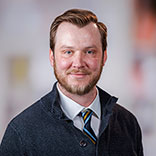
Fred Brown, MDiv, BCC
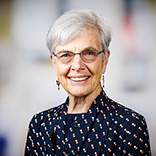
JoAn Choi

Linda Erickson, MDiv
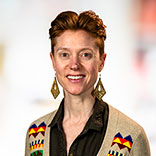
Elisabeth Geschiere, MDiv

Stephen King, MDiv, PhD
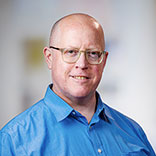
John Malcomson, MDiv
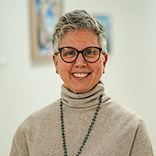
Juliana Perez

Michael Sarko

Kyle Turver, MA, MDiv
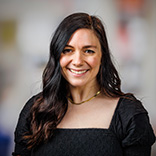
Alina Wahl, MDiv
